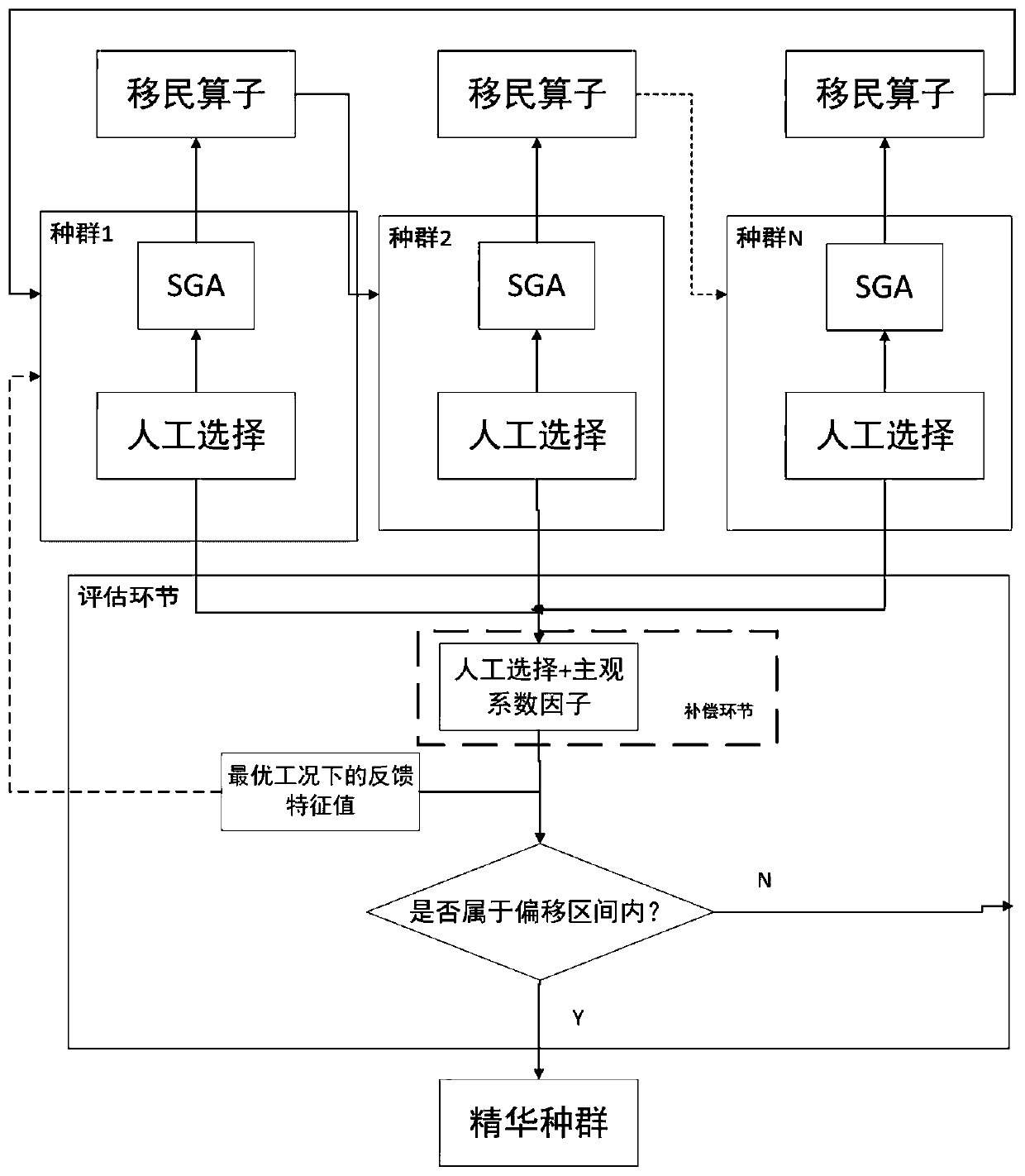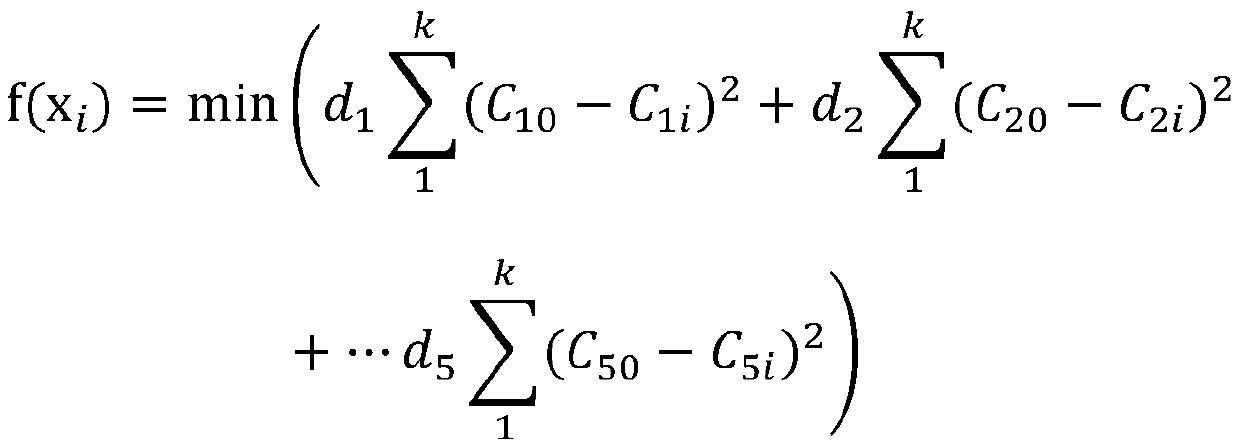Zinc flotation working condition judgment method based on improved self-adaptive multi-population genetic algorithm
A genetic algorithm and discrimination method technology, applied in the field of zinc flotation condition discrimination, can solve the problems of ignoring the importance of subjective initiative, artificial experience, large offset error, etc., to achieve knowledge automation, improve discrimination accuracy, and work condition discrimination. fast effect
- Summary
- Abstract
- Description
- Claims
- Application Information
AI Technical Summary
Problems solved by technology
Method used
Image
Examples
Embodiment Construction
[0033] The present invention will be further described below in conjunction with the accompanying drawings. First, the foam image corresponding to a certain high-grade value is required as a training set, and the corresponding image features are extracted, and then a series of operations are performed. The specific steps are as follows:
[0034] A. Given a series of k images P corresponding to the final concentrate grade value higher than 54 1 , P 2 ...P k, and then by multiple physical features of the image including foam size, texture features, including contrast, entropy, correlation coefficient, dynamic features (foam flow rate), feature extraction, foam size feature data set C 1 =(C 11 ...C 1k ) is obtained by segmenting the zinc flotation foam image, and the texture features are obtained by corresponding calculation of the gray level co-occurrence matrix of the foam image to obtain the data set C of contrast, entropy value and correlation coefficient 2 =(C 21 ...C ...
PUM
 Login to View More
Login to View More Abstract
Description
Claims
Application Information
 Login to View More
Login to View More - R&D
- Intellectual Property
- Life Sciences
- Materials
- Tech Scout
- Unparalleled Data Quality
- Higher Quality Content
- 60% Fewer Hallucinations
Browse by: Latest US Patents, China's latest patents, Technical Efficacy Thesaurus, Application Domain, Technology Topic, Popular Technical Reports.
© 2025 PatSnap. All rights reserved.Legal|Privacy policy|Modern Slavery Act Transparency Statement|Sitemap|About US| Contact US: help@patsnap.com



